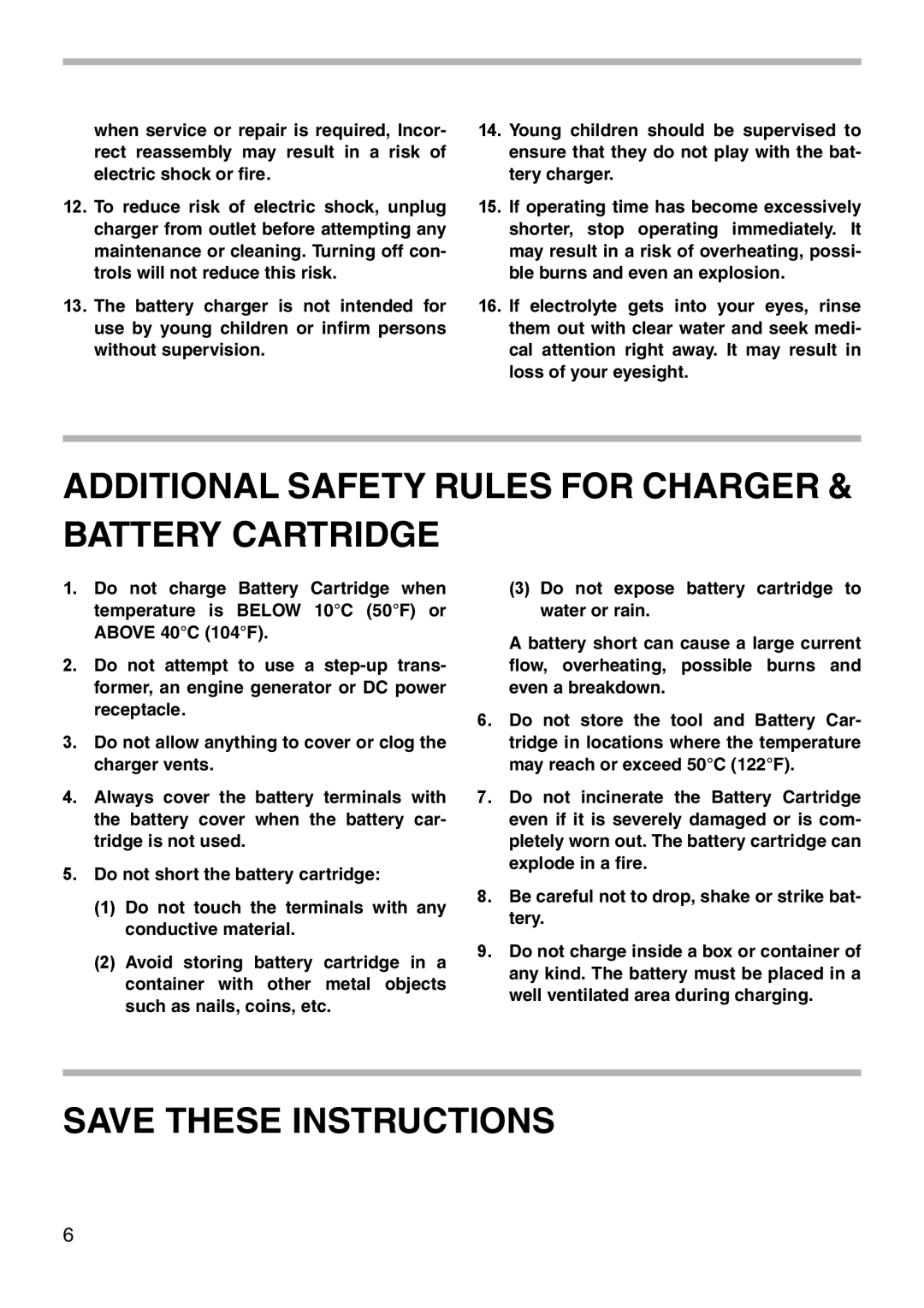
when service or repair is required, Incor- rect reassembly may result in a risk of electric shock or fire.
12.To reduce risk of electric shock, unplug charger from outlet before attempting any maintenance or cleaning. Turning off con- trols will not reduce this risk.
13.The battery charger is not intended for use by young children or infirm persons without supervision.
14.Young children should be supervised to ensure that they do not play with the bat- tery charger.
15.If operating time has become excessively shorter, stop operating immediately. It may result in a risk of overheating, possi- ble burns and even an explosion.
16.If electrolyte gets into your eyes, rinse them out with clear water and seek medi- cal attention right away. It may result in loss of your eyesight.
ADDITIONAL SAFETY RULES FOR CHARGER &
BATTERY CARTRIDGE
1.Do not charge Battery Cartridge when temperature is BELOW 10°C (50°F) or ABOVE 40°C (104°F).
2.Do not attempt to use a
3.Do not allow anything to cover or clog the charger vents.
4.Always cover the battery terminals with the battery cover when the battery car- tridge is not used.
5.Do not short the battery cartridge:
(1)Do not touch the terminals with any conductive material.
(2)Avoid storing battery cartridge in a container with other metal objects such as nails, coins, etc.
(3)Do not expose battery cartridge to water or rain.
A battery short can cause a large current flow, overheating, possible burns and even a breakdown.
6.Do not store the tool and Battery Car- tridge in locations where the temperature may reach or exceed 50°C (122°F).
7.Do not incinerate the Battery Cartridge even if it is severely damaged or is com- pletely worn out. The battery cartridge can explode in a fire.
8.Be careful not to drop, shake or strike bat- tery.
9.Do not charge inside a box or container of any kind. The battery must be placed in a well ventilated area during charging.
SAVE THESE INSTRUCTIONS
6
